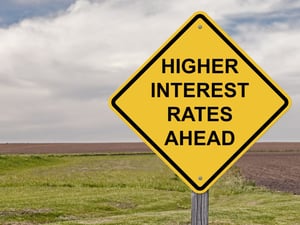Hard Money Lender Rates – Why Are They High?
Hard money lender rates are high. You might have guessed by now that hard money lenders are vastly different from traditional lenders, such as banks. First off, banks won’t even think twice about denying your loan for a fix-and-flip. Traditional lenders refuse to lend on rehab properties due to the high risk involved in such an investment. Therefore, when you want your fix-and-flip deal financed, you would go to a hard money lender.
However, one of the biggest surprises which comes to new flippers is the interest rate on a hard money loan. They expect it to be low, like a mortgage loan (4.2%) or auto loan (2.9%). But since a hard money loan differs from a traditional loan, you can see interest rates between 10 – 15%. Many of these new investors are left wondering why hard money loans demand such high interest rates. Therefore, they also wonder if they are worth the investment.
The Investor's Edge is here to address all of your concerns regarding interest rates and origination points with hard money loans. We want you to be as informed as possible regarding all hard money loan details. Thus, you can make the best decision for your financial future.
Why Are Interest Rates on Hard Money Loans so High?
Interest rates on hard money loans are comparatively high because of two factors:
- The loan periods are short-term
- The investment is risky
Short-Term Loans
The length of a hard money loan can range from three months to five years. Since the real estate market is known for its volatility, a property needs to be fixed up and flipped as soon as possible to gain a solid profit. Hard money loans are designed to be short-term with higher interest rates as incentive for the borrower to get in, get it fixed and get it sold quickly. No one wants to pay high interest rates long-term, so borrowers are more focused on finishing the deal, repaying the loan and pocketing the profit. In fact, smart investors aim to finish the rehab and sell the property ahead of the loan term to avoid hefty interest charges. This is why many hard money lenders institute a prepayment penalty. However, the best hard money lenders, like The Investor's Edge, do not charge prepayment penalties. Thus, the faster you go, the more money you make in the end.
Risky Investment
Interest rates on hard money loans are higher because these loans take on a higher risk than traditional lenders are willing to take on. In exchange for acceptance of this risk, hard money lenders require a higher rate of return. The higher the risk, the higher the rate.
This is good news in the sense that the opposite can also hold true: the lower the risk, the lower the rate. Once a hard money lender evaluates your property and determines the LTV (loan-to-value ratio) and ARV (after-repair value), they can lower the interest rates for exceptional deals which hold fewer risks. Some hard money lenders also take into account the borrower’s credit score and previous fix-and-flip experience to lower the interest rate.
What Is a Hard Money Loan Rate?
When a hard money lender loans you an amount of money to cover the property purchase and rehab costs, your total bill isn’t restricted to just the loan amount. If a lender was to loan you $80,000 and you pay $80,000 back, it isn’t a loan; it’s a grant. Hard money lenders, like other financial institutions tack on an extra amount per month, known as interest. That’s how financial institutions make money and how private money investors see a return on their investment. An interest rate is a percentage of the total loan which is tacked on as a fee for letting you use their money.
What Is The Investor's Edge’s Interest Rate?
One of the best things about working with The Investor's Edge is you don’t need to worry about making monthly payments. We want you to concentrate on rehabbing and reselling the property, so we save the repayment for the end, including the interest. While you can expect to pay interest charges of 10 – 15% of the total loan with other hard money lenders, The Investor's Edge charges an interest rate of 1.25 – 1.5% per month for the loan term. We also don’t charge prepayment penalties, so if you pay off the loan early, you pay less interest.
What Are Origination Points?
The two main factors which determine the overall cost of the loan are the interest rate and origination points. Origination points are a fee borrowers pay to lenders to compensate them for the role the lenders play in evaluating, processing and approving the loan. Points are a form of prepaid interest with each point representing 1% of the loan. Most hard money lenders charge an average of 4-7 points.
How Many Origination Points Does The Investor's Edge Charge?
The Investor's Edge charges a flat fee of 5.5 – 6.5 points per loan. In percentage, 5.5% if your credit score is 680 or above and 6.5% if your credit score is below 680.
…Is It All Worth It?
The answer is a resounding YES. Though hard money loans have higher interest rates, you can make a tremendous profit in fix-and-flip investments. On average, our borrowers earn a profit of $30k per deal. Some have earned as high as $110k on their investment! And the best part is, you have power to lower interest rates on your loan. You can lower the interest rate the following ways:
- Find a very profitable, low-risk deal
- Have an excellent credit score
- Pay off your loan early
Do Hard Money is here to help you open the door to financial freedom through profitable fix-and-flip investment deals.
Learn how this all works by attending our next webinar.



COMMENTS